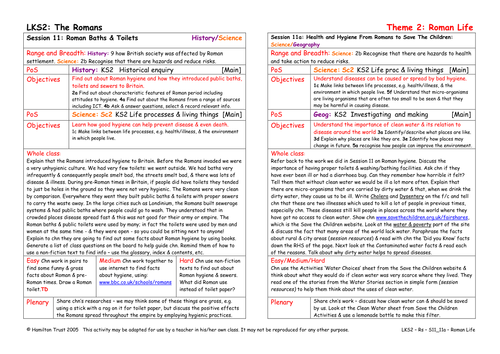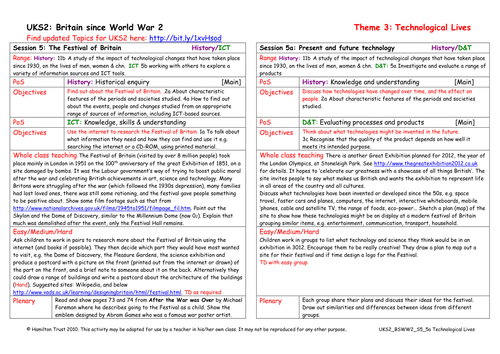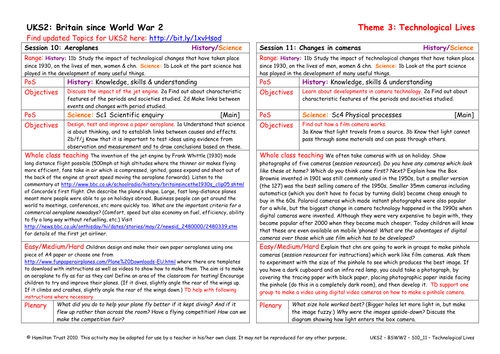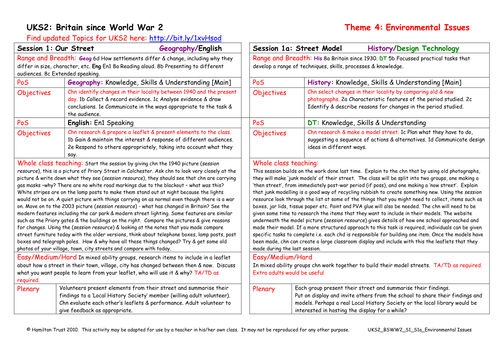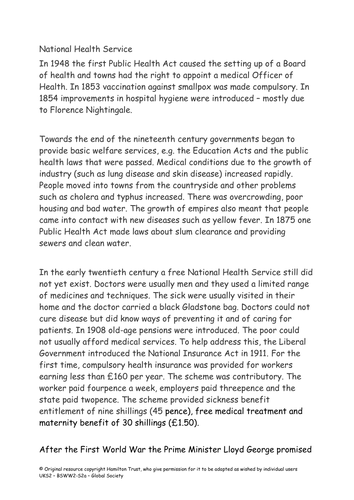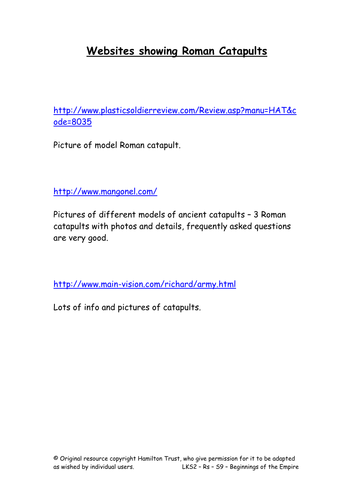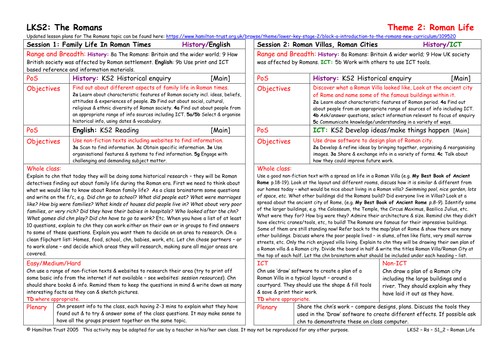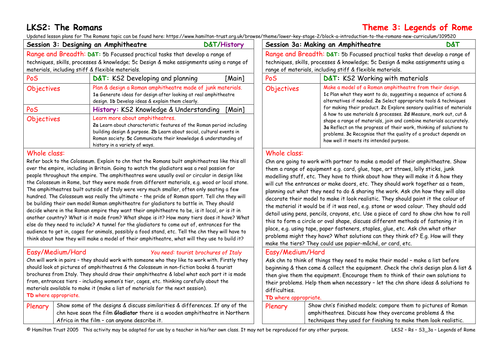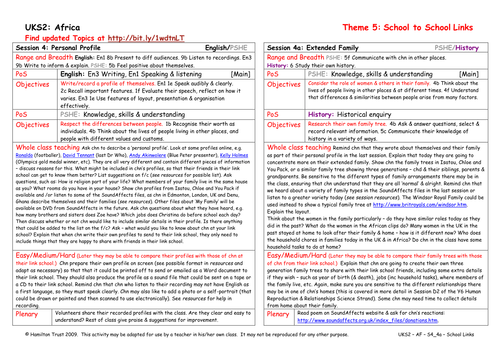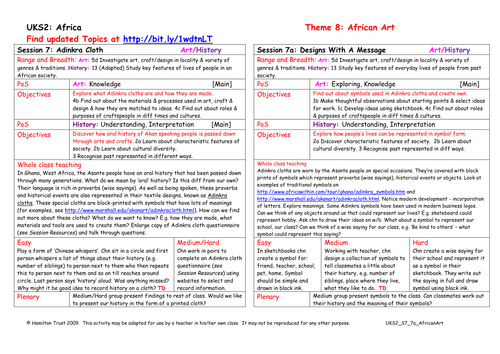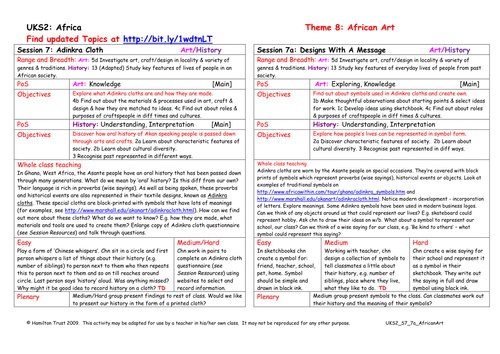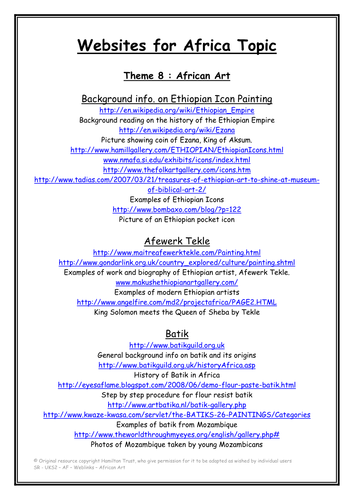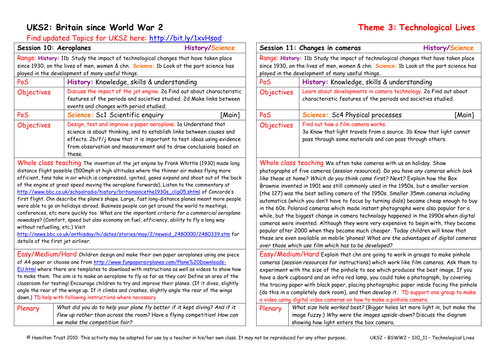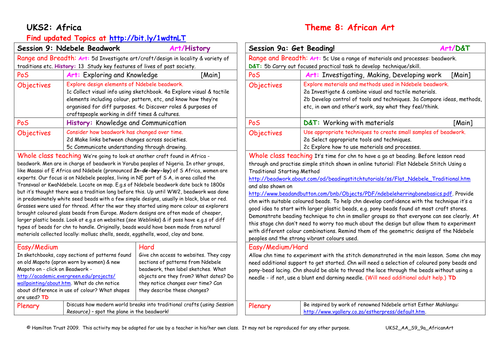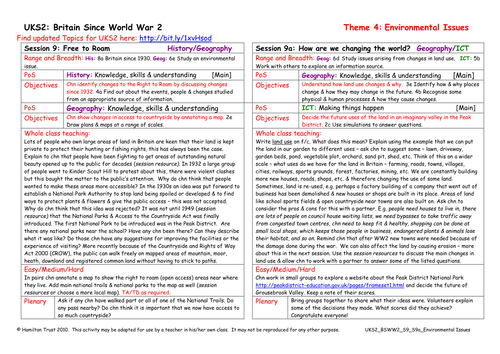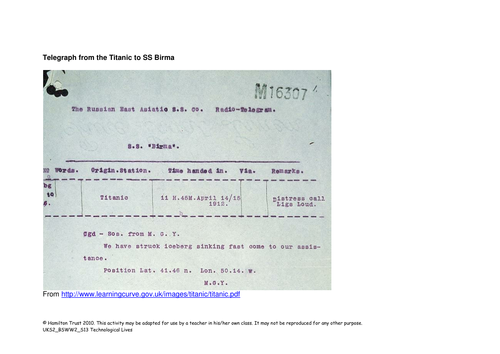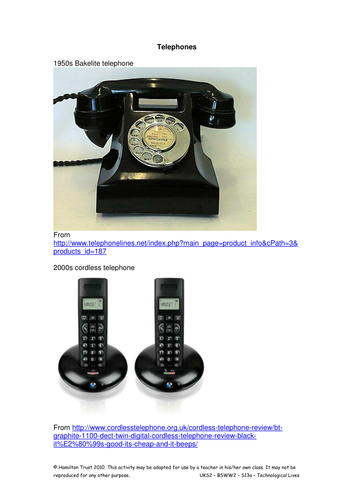
397Uploads
10059k+Views
11655k+Downloads
History

From Romans To Save The Children
Children continue work on health and hygiene in relation to clean water and the diseases caused/transmitted by dirty water. Using the Save the Children website, children discover the ways in which this issue is being tackled in different parts of the world.
Suitable for years 3 and 4.

Present and Future Technology
Children discuss what technologies could be displayed in a 2012 exhibition in a similar way to the Festival of Britain in 1951, and then at a similar event in 3012.

We Are Britain
We all have at least one thing in common – we live in Britain! Chn meet lots of different chn from all over the UK courtesy of We are Britain by B. Zephaniah. They see people move around the UK & other countries é they think about their own histories.
Suitable for Years 1 é 2.

Changes in Cameras
Children look at cameras from different decades and then make a pinhole camera, experiment to see which size pinhole works best.

Street Model
Building on previous session, children make a model of a street near the school (or from imagination). Class is split in two – one group make a ‘then’ model and one a ‘now’ model – using junk modelling techniques. Display along with leaflets previously made.

Rising Population
Explain that the population in Britain has been rising steadily since World War 2. This is not only due to immigration, but also to improved health services. Discuss the birth of the National Health Service. Children draw graphs to show population growth.

Design & Make Catapults
Children look again at Roman catapults. Using a wide variety of materials, incl some mechanical components, they design & create a working model of a catapult in the Roman style. They develop their ideas, then compete to see whose catapult works best!
Suitable for years 3 and 4.

Family Life In Roman Times
This session begins some work on family life in the Roman Empire. Children prepare for, and then carry out their own research. Each group picks an aspect of family life and then use the internet as well as books and information sheets to find out some facts.
Suitable for years 3 and 4.

Designing an Amphitheatre
Children continue the work on gladiators and Roman entertainment and look at amphitheatres. They study what they look like and realise that these varied from place to place. They begin to plan and design their own model amphitheatre.
Suitable for years 3 and 4.

Extended Family
Now children are going to expand the information about themselves to include their family. They draw family trees. Discuss the role of women – do children’s mothers have the same role as their grandmothers or earlier generations? What about the African women?
Suitable for years 5 and 6.

Adinkra Cloth
Moving to West Africa, children explore how history of Asante people has been represented through the craft of block printing Adinkra cloths.
Children use web research to find out about history, techniques and processes involved.

Designs With A Message
Adinkra cloths are craft with a message. Children explore the traditional symbols printed on the cloths and create their own symbols to tell a story of their own lives.

Ethiopian Icon Painting
Take a trip back in time to introduce art of icon painting from ancient kingdom of Ethiopia.
Children explore features of this art form and consider how they were painted and their purpose. They copy small areas of icons to capture style elements.

Aeroplanes
Children look at different aeroplanes, make paper aeroplanes and then see which flies the furthest.

Ndebele Beadwork
Zooming in on South Africa, children are introduced to the incredible beadwork of the Ndebele people of KwaNdebele.
Through web images children explore the history of this craft and investigate its key visual elements.

Energy
This session we consider how we are using up fossil fuels. How did we heat our homes and cook in the past? Discuss renewable energy and any local schemes to try and use more renewable energy. Challenge children to make a solar oven and cook something with it!

Free To Roam
In the past landowner’s have not wanted people to have access to their land. Children look at how the introduction of National Parks and Access to the Countryside Act 1949 has changed this. Children annotate a map showing ‘right to roam’ areas, trails, etc.

Shopping Basket
Look at products that would be on weekly shopping list, consider the different ways in which these were sold – less packaging. Discuss equivalents between imperial and metric measurements and money. Children convert prices or sort foods into then and now.

Telegrams
Children look at old telegrams and then write their own about an important event to the British Prime Minister of the day.

Telephones
Children order pictures of old telephones. They decode, then write mobile ‘phone text messages.

